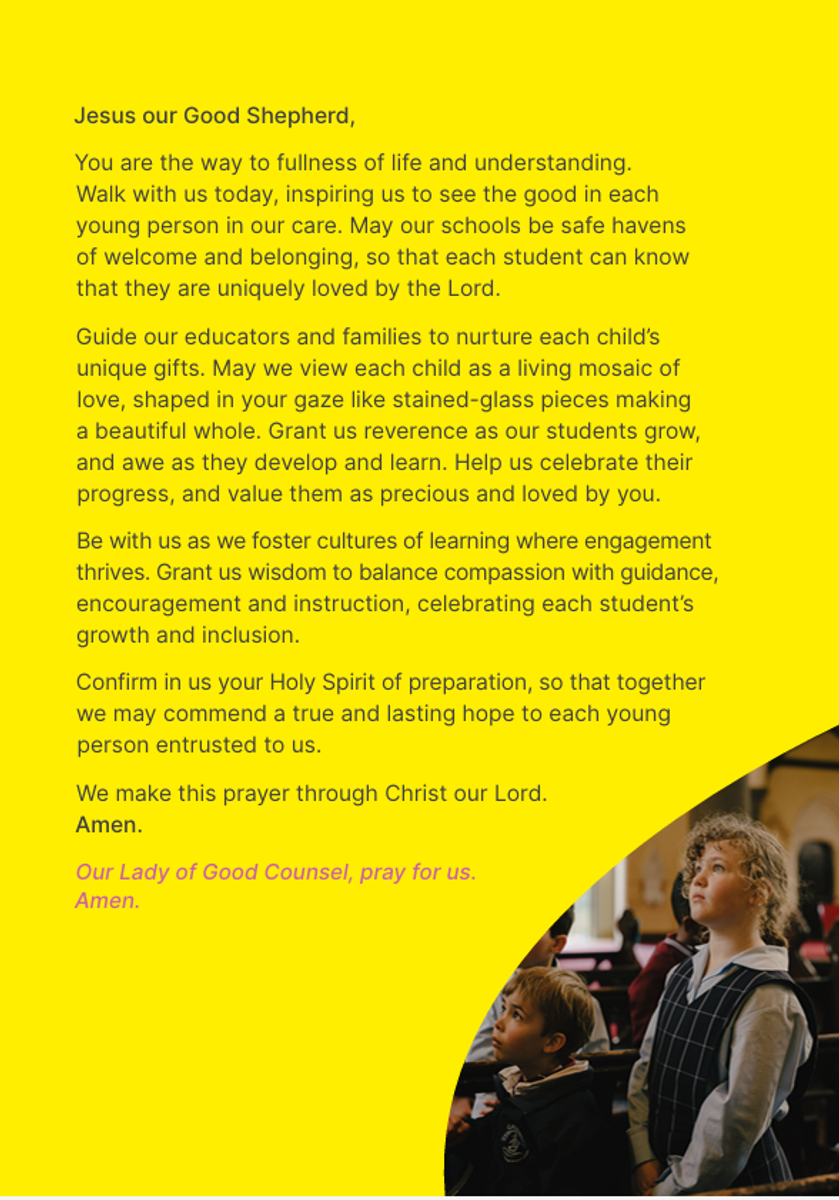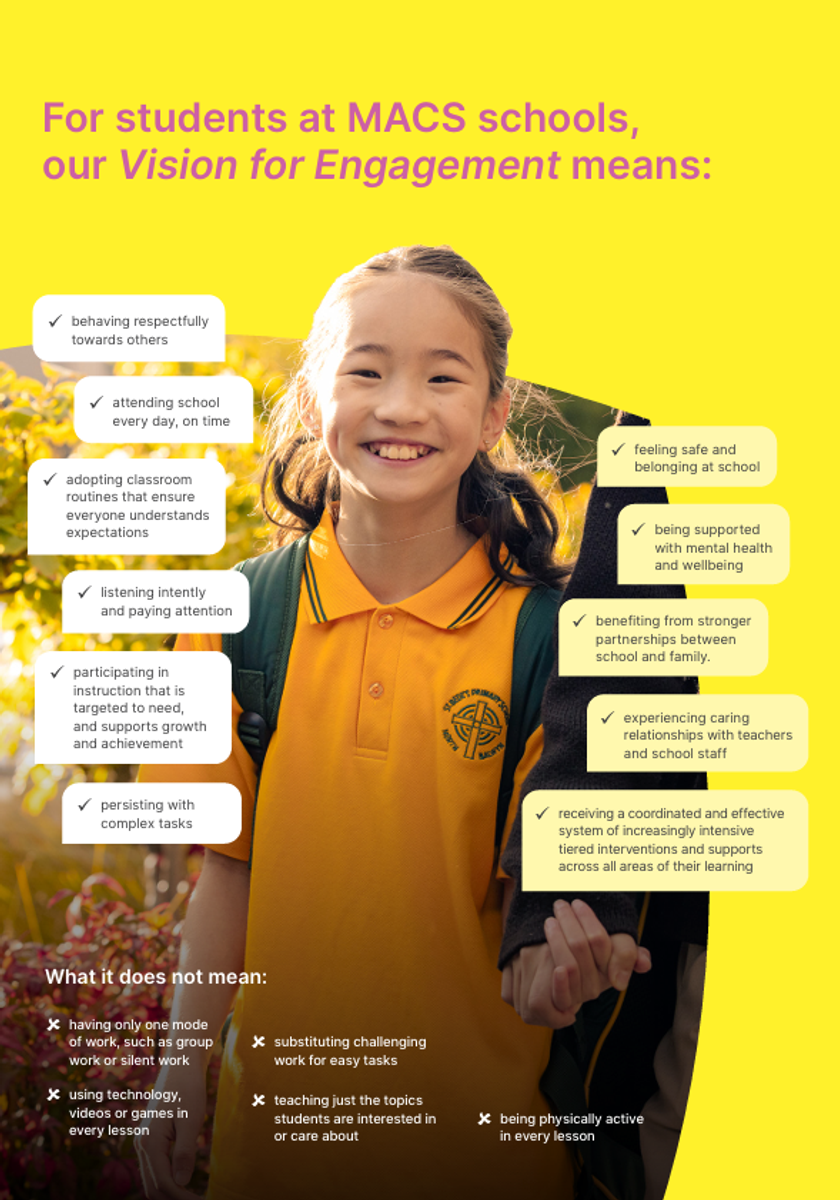Principal's Report
A Message from Julie..

Principal's Report
A Message from Julie..
Embracing Flexible Grouping for Targeted Learning in Reading and Mathematics
This term, we are excited to trial a new approach to teaching Reading and Mathematics across our school: flexible grouping for explicit instruction. This initiative is part of our ongoing commitment to evidence-based practices that support every learner to succeed and thrive.
Flexible grouping allows students to work in small, targeted groups that are fluid and responsive to their current learning needs. Rather than remaining in fixed ability groups, students are regularly assessed and grouped according to the specific skills or concepts they are ready to learn next. This ensures that all students receive timely, focused support or extension, and that teaching is both precise and purposeful.
A key feature of this approach is that it often involves students working with peers from other classes within their year level. Teachers are collaborating more closely than ever—co-planning lessons, analysing student data together, and sharing responsibility for student learning. This has created rich opportunities for professional dialogue and collective expertise, leading to more consistent and high-quality instruction across the school.
We are seeing some exciting early benefits:
This trial aligns with our whole-school focus on high-impact teaching strategies and our belief that every child can learn and achieve growth when teaching meets their needs. As we continue to monitor and evaluate the outcomes of flexible grouping, we will share insights and next steps with our community.
Thank you for your continued support as we explore innovative practices that put student growth at the centre.
The MACS Vision for Engagement is an evidence informed and authentically Catholic commitment to nurturing calm, respectful and inclusive classrooms in which every student can thrive academically, socially, emotionally and spiritually. Put simply, it is our collective answer to a simple but important question: what kind of learning environments do our students need so they can flourish? And for us, the answer is clear.
Why? Young people today are facing unprecedented challenges.
Evidence now charts declining mental health and resilience, rising anxiety, increased social isolation. Students often arrive at the school gate distracted and preoccupied, holding devices that expose them to distressing disinformation and online predatory and bullying behaviour. These complex challenges demand a purposeful and coherent response from parents and schools, to reclaim classrooms where calm is the norm; where respectful behaviour is not assumed, but taught; where routines are consistent, expectations are shared, and every student feels safe, seen, and supported; where excellence is not reserved for the privileged few, but is expected for all; where our Catholic commitment to excellence and equity for all is not an aspiration, but a lived reality; and where the dignity of every child is upheld, not just in words but in practice.
What? Student academic, behavioural, communication, engagement, health, and wellbeing needs are interconnected and complementary facets of student learning.


Vision for Engagement complements our Vision for Instruction. Both are grounded in world-class evidence and research from most successful teachers. Where our Vision for Instruction focuses on what we teach and how we teach it, Vision for Engagement focuses on the conditions essential for learning. These Position Statements reflect our belief that every child and young person is made in the image of God and deserves to be treated with dignity and respect, and given the best opportunity to flourish in their life.
Our engagement practices:
• teaching respectful behaviour
• fostering belonging
• focusing on attendance
• promoting mental health and wellbeing
• enabling motivation
• targeting individual learning needs.


For students, Vision for Engagement means:
• behaving respectfully towards others
• attending school every day, on time
• adopting classroom routines that ensure expectations are understood
• listening intently and paying attention
• participating in instruction that is targeted to need, and supports growth and achievement
• persisting with complex tasks
• feeling safe and connected at school
• being supported with mental health and wellbeing
• benefiting from stronger partnerships between the school and family
• experiencing caring relationships with teachers and school staff
• receiving a coordinated and effective system of support across all areas of their learning.
For teachers, Vision for Engagement means:
• being supported with high-quality professional development and resources
• clear guidance and a focused and consistent wholeschool approach to creating and sustaining learningenabled environments
• reclaiming the classroom to truly focus on teaching.
By taking a whole-of-system approach, our Vision for Engagement creates a learning environment in all schools that is primed for students to grow and succeed, with the right support.
MACS Annual Report to the School Community
Warm regards,
Julie McDougall
Principal